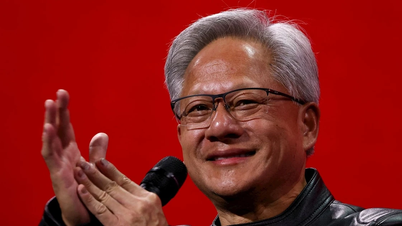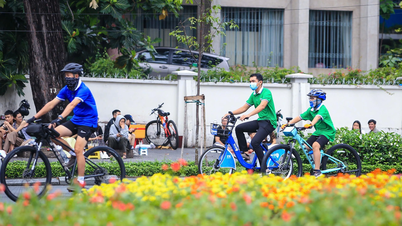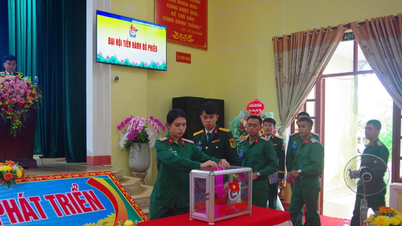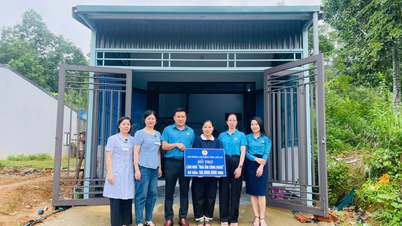In 2015, the Henn na Hotel made a splash in the travel industry: It was the world’s first hotel run entirely by robots. From receptionists to bellboys to room attendants, the hotel deployed more than 240 robots to replace humans. But just a few years later, that technological dream has been shattered — and humans are back in business.

Guests staying at Henn na Hotel use robots at the front desk. (Source HIS)
Henn na Hotels, which means “strange” in Japanese, were once a symbol of the future of hospitality. Guests were greeted by humanoid robots with porcelain skin, gentle smiles and emotionless eyes. Some branches even used dinosaur robots to check in, creating a strange but fascinating experience for international visitors.
“ We want to create the world's most efficient hotel, ” said Hideo Sawada, the hotel chain's founder. But the results have not been as expected.

Robot staff at the Henna na Hotel, Japan. (Source: Shuttestock)
Henn-na Hotel has had to fire more than half of its robots because they caused more trouble than help.
One of the most frustrating issues for guests at Henn na Hotel is that the robot receptionist cannot handle basic questions. When guests ask about breakfast hours or how to connect to Wi-Fi, the robot often does not understand or gives incorrect information. This leaves many people to find solutions themselves or call for support staff, defeating the hotel's original goal of being "fully automated".
One odd but common problem is that the in-room robot assistant recognizes a guest’s snoring as a call. The sound sensor system is programmed to respond to human speech, but it fails to differentiate between speech and snoring. As a result, many guests are woken in the middle of the night by a robot asking, “How can I help you? ” — not a pleasant experience.
Luggage robots also face many technical limitations. They cannot navigate stairs, cannot recognize automatic doors, and often get stuck in hallways. Hotel staff must constantly intervene to help the robots complete their tasks, severely reducing their efficiency.
“We thought robots would help reduce workload, but in fact they create more work,” an anonymous employee told TheTravel.
“Robots can perform repetitive tasks, but in a service environment, flexibility and emotion are impossible to program,” said Professor Hiroshi Ishiguro, a robotics expert at Osaka University. He said that completely replacing humans with machines in the hotel industry is “ a fantasy that has yet to come true .”

Machines that create a sense of insecurity rather than pleasure. (Source: Orit-Naomi)
Faced with pressure from customers and the cost of maintaining robots, management has been forced to rehire human staff. According to Nippon.com, many Henn na Hotel branches have reduced the number of robots and increased human staff to ensure service quality.
“I came out of curiosity, but after two days, I just wanted to talk to a real person,” said one former guest.

Japanese Henna na hotel website interface with many robot services. (Source: Henna na)
Henn na Hotel has about 150 robots operating at the front desk and in guest rooms across the chain. Some of the hotel's branches, such as Maihama Tokyo Bay and Osaka Namba, still maintain robots as a technological highlight, but no longer rely entirely on them.
The story of Henn na Hotel is a cautionary tale for the ambitions of automation in the hospitality industry. While robots may make a good first impression, human flexibility, emotion and problem-solving skills are still indispensable. Technology can assist, but cannot completely replace, the heart of the hospitality industry: people.
Source: https://vtcnews.vn/khi-robot-bi-sa-thai-cau-chuyen-ky-la-cua-khach-san-henn-na-ar959129.html




![[Photo] Solemn opening of the 8th Congress of the Central Public Security Party Committee, term 2025-2030](https://vphoto.vietnam.vn/thumb/1200x675/vietnam/resource/IMAGE/2025/10/4/f3b00fb779f44979809441a4dac5c7df)

![[Photo] Bustling Mid-Autumn Festival at the Museum of Ethnology](https://vphoto.vietnam.vn/thumb/1200x675/vietnam/resource/IMAGE/2025/10/4/da8d5927734d4ca58e3eced14bc435a3)


















![[Photo] General Secretary To Lam attends the 8th Congress of the Central Public Security Party Committee](https://vphoto.vietnam.vn/thumb/1200x675/vietnam/resource/IMAGE/2025/10/4/79fadf490f674dc483794f2d955f6045)


























![[VIDEO] Summary of Petrovietnam's 50th Anniversary Ceremony](https://vphoto.vietnam.vn/thumb/402x226/vietnam/resource/IMAGE/2025/10/4/abe133bdb8114793a16d4fe3e5bd0f12)

![[VIDEO] GENERAL SECRETARY TO LAM AWARDS PETROVIETNAM 8 GOLDEN WORDS: "PIONEER - EXCELLENT - SUSTAINABLE - GLOBAL"](https://vphoto.vietnam.vn/thumb/402x226/vietnam/resource/IMAGE/2025/7/23/c2fdb48863e846cfa9fb8e6ea9cf44e7)





































Comment (0)